EAST RUTHERFORD, N.J. - The Coach's Corner, Giants.com's exclusive weekly interview with head coach Pat Shurmur:
Q: Did you get to take a little time off during the bye? Did you get away or did you stay focused on football the entire time?
Shurmur: "No, I didn't travel. I was here. I spent time each day thinking about things we need to do to move forward. Just try to think about things that we can do better that can help us win games. That's the focus. It's easy to say you love to win and hate to lose, but the reality is, what are you doing to help us win? That's the soul-searching that we, as coaches, go through. Are there things tactically that we can do differently and better? I think the players go through the same process."
Q: You always take it one game at a time. You have now six games remaining. Have you talked to the team about finishing strong and doing everything possible to play to your capabilities over these last six games and finish as you believe you can?
Shurmur: "The message is, and it's the same every week, you do everything in your power to win that next game. You win that game, then you go win the next one and you have a little winning streak going. That's what you're trying to get going. You certainly, at least in our profession, you add them up at the end."
Q: When you were asked prior to the bye why music was no longer played at practice, you said, "it just wasn't working right. We just decided not to do it." The music remained off when you returned to work this week. Can you elaborate as to why?
Shurmur: "I felt like it was the right thing to do to keep the music off, especially during the individual periods and the group periods, so that we can coach the players and they can hear me and us better. Now we still use music or we use crowd noise for the offense when we're on the road. But the reason we don't do it is so that we, as coaches, our voices can be heard and they can be coached immediately. I think it's the unintended consequence of not having music. As time has gone on, it's become a trendy thing to have music at practice. But for us and for our football team, I think the right thing to do is to keep the practice field a little quieter so that they can hear our coaching points."
Q: Since you've done that, have you gotten the results that you've wanted?
Shurmur: "Well, we feel like in certain situations, guys are getting better, especially the young players."
Q: Daniel is the first rookie in NFL history with two 300-yards four touchdowns games. On the road, he has 11 touchdown passes, two running. His passer rating is much better on the road than at home. He has played well and put up big numbers in hostile environments. When you look at the big picture with him, is he ahead of some of the younger quarterbacks you've had?
Shurmur: "I don't know. I think he has a bright future. There are two things running parallel. Number one, he's a rookie. Number two, he's playing the hardest position to play for a first-year player. But we're demanding of him that he perform at the level of a guy that's played the position for many years. He's able to handle that. He's tough, he's resilient, he's very self-aware when he makes mistakes. He does everything in his power each week to get himself ready to play that next week's game."
Q: The game against the Jets was played in front of a split crowd, but is his ability to perform in hostile environments part of what you've saying about his toughness and resilience?
Shurmur: "Yeah. I think that's a little bit cliché. All road environments are loud. It's the noise that makes it difficult to operate on offense, obviously, from a communication standpoint. I think the important thing is to try to separate yourself from really the setting and just play, whether you're on the road or at home."
Q: Both Daniel and you were asked yesterday about his fumbles. While answering, you said, 'As I look through them.' Did you, as part of your bye week study, review all of his fumbles?
Shurmur: "Absolutely. You look at everything a player does. You look at all of the positive things from touchdown passes to interceptions, fumbles, how he functioned in all of the third down areas and in the red zone. So yeah, part of the red zone is obviously looking at what the quarterback did. Certainly, that's always on the front-burner. It certainly was this year."
Here is a closer look at the starters of the Chicago Bears for Week 12 against the Giants.
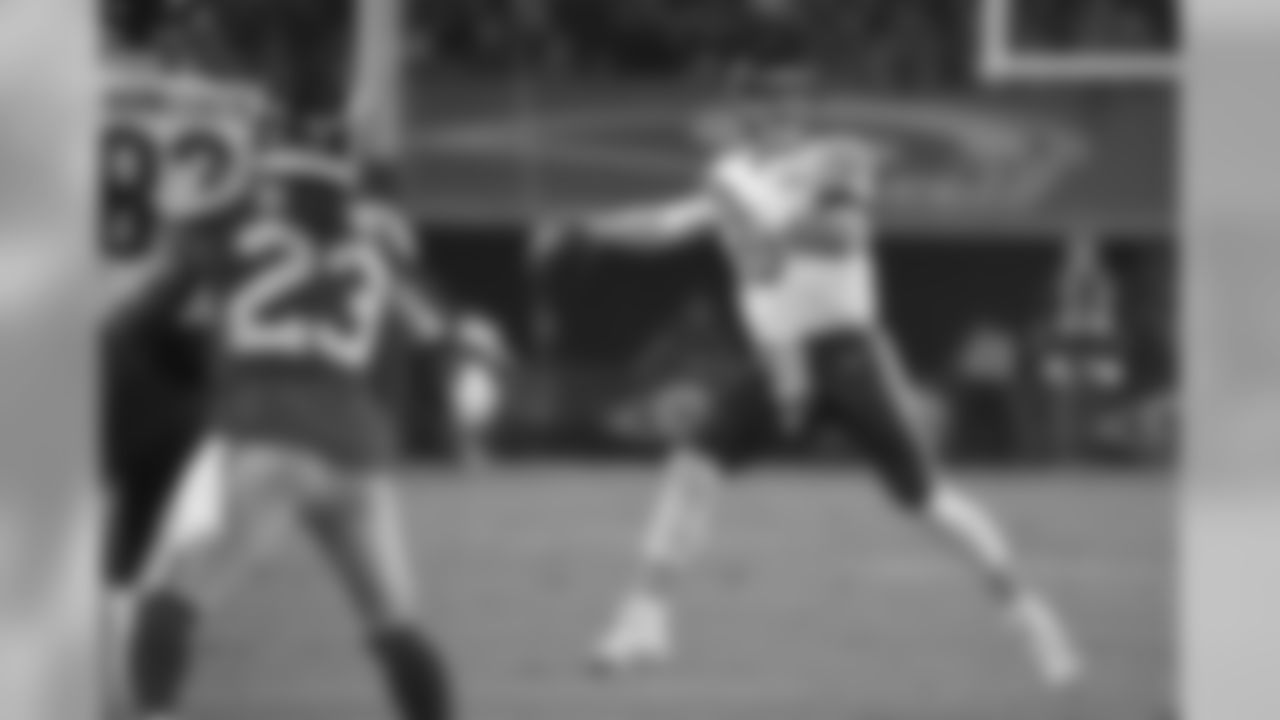
Chicago Bears quarterback Mitchell Trubisky plays against the Los Angeles Rams during the first half of an NFL football game Sunday, Nov. 17, 2019, in Los Angeles. (AP Photo/Mark J. Terrill)
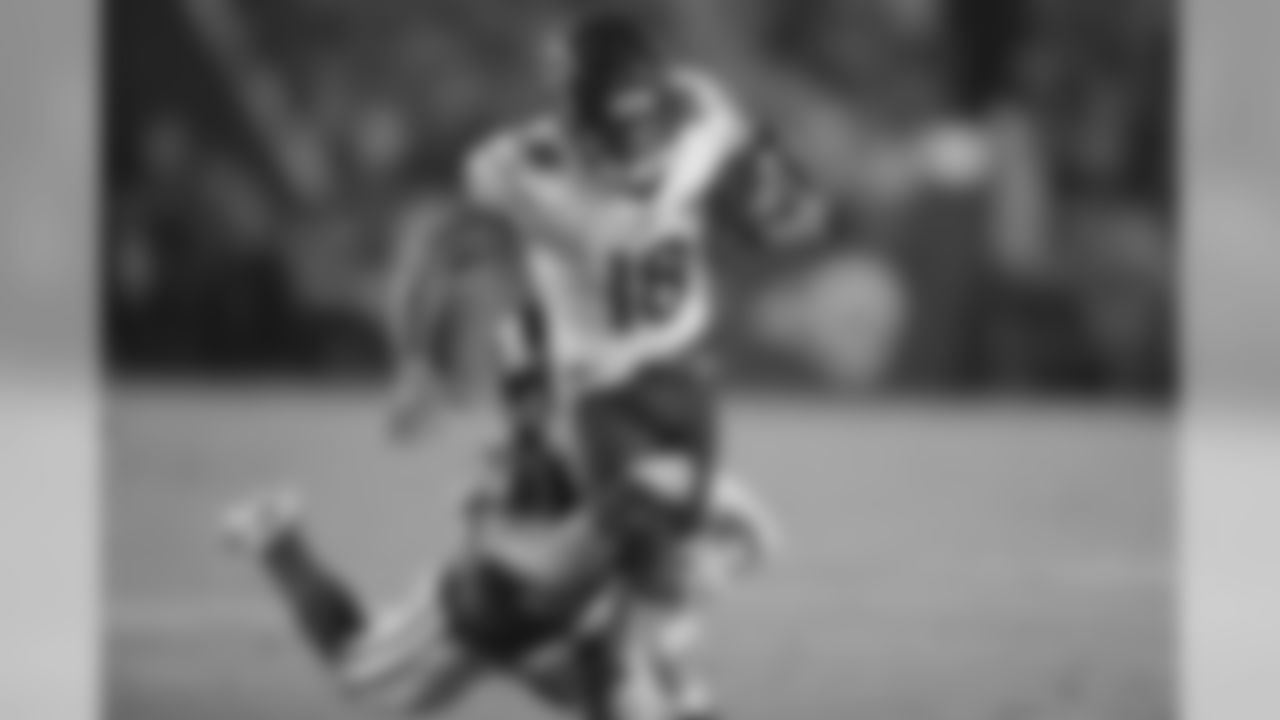
Chicago Bears wide receiver Taylor Gabriel is tackled by Los Angeles Rams safety Taylor Rapp during the first half of an NFL football game Sunday, Nov. 17, 2019, in Los Angeles. (AP Photo/Kyusung Gong)
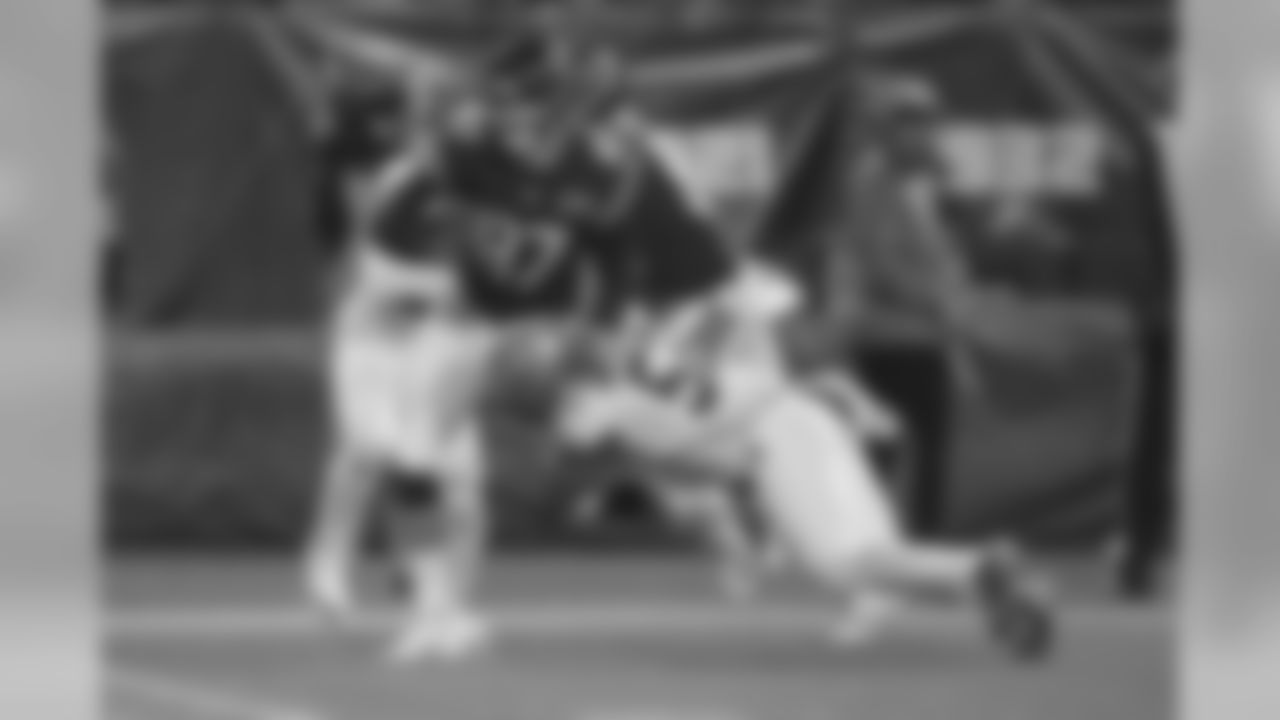
Chicago Bears tight end Adam Shaheen (87) its tackled by New Orleans Saints linebacker Craig Robertson (52) during the second half of an NFL football game in Chicago, Sunday, Oct. 20, 2019. (AP Photo/Mark Black)

Chicago Bears offensive tackle Bobby Massie (70) in the first half during an NFL football game against the Arizona Cardinals, Sunday, Sept. 23, 2018, in Glendale, Ariz. (AP Photo/Rick Scuteri)
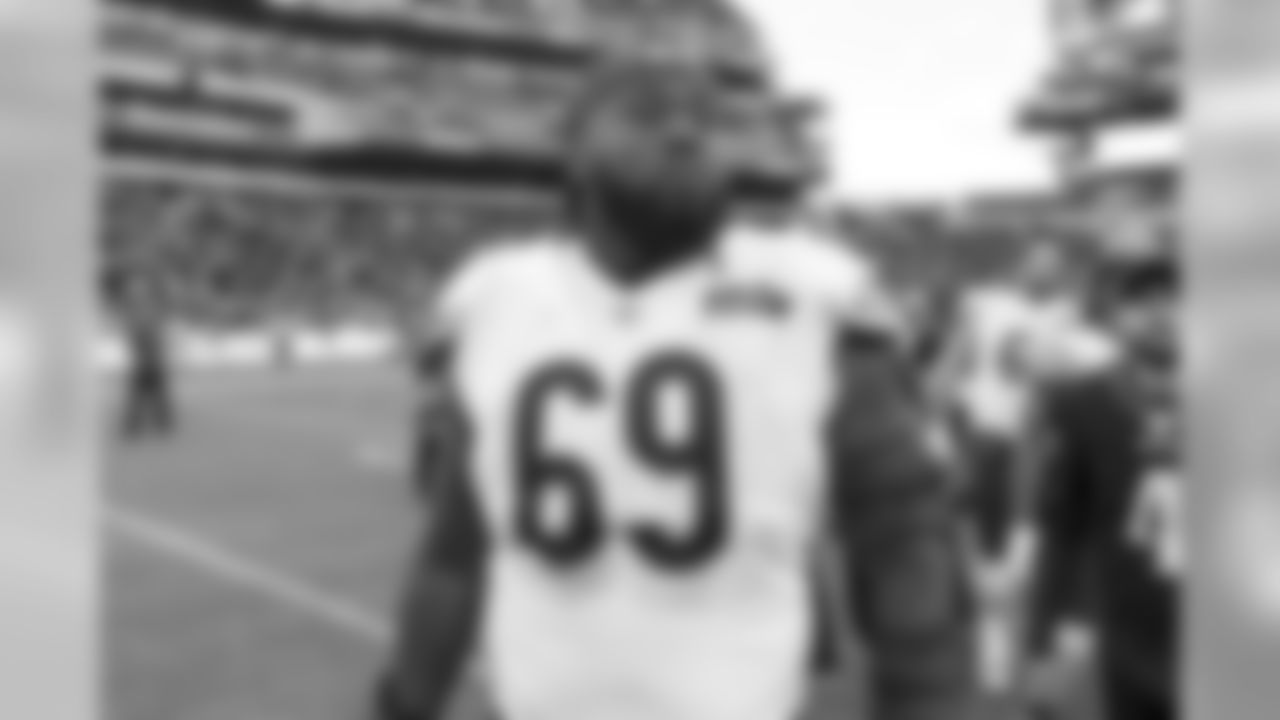
Chicago Bears offensive tackle Rashaad Coward (69) looks on following the the NFL football game against the Philadelphia Eagles, Sunday, Nov. 3, 2019, in Philadelphia. The Eagles won 22-14. (AP Photo/Chris Szagola)
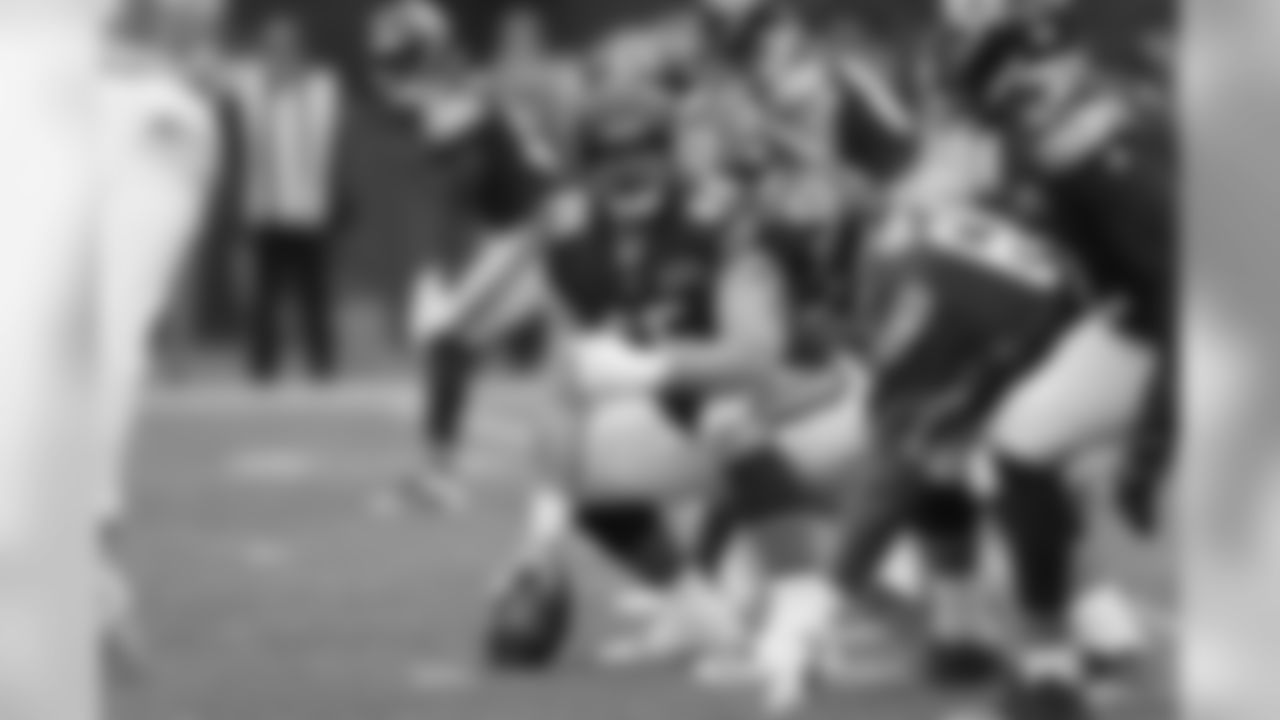
Chicago Bears offensive guard Cody Whitehair (65) watches coverage at the line of scrimmage against the Detroit Lions during the first half of an NFL football game in Chicago, Sunday, Nov. 10, 2019. (AP Photo/Charlie Neibergall)
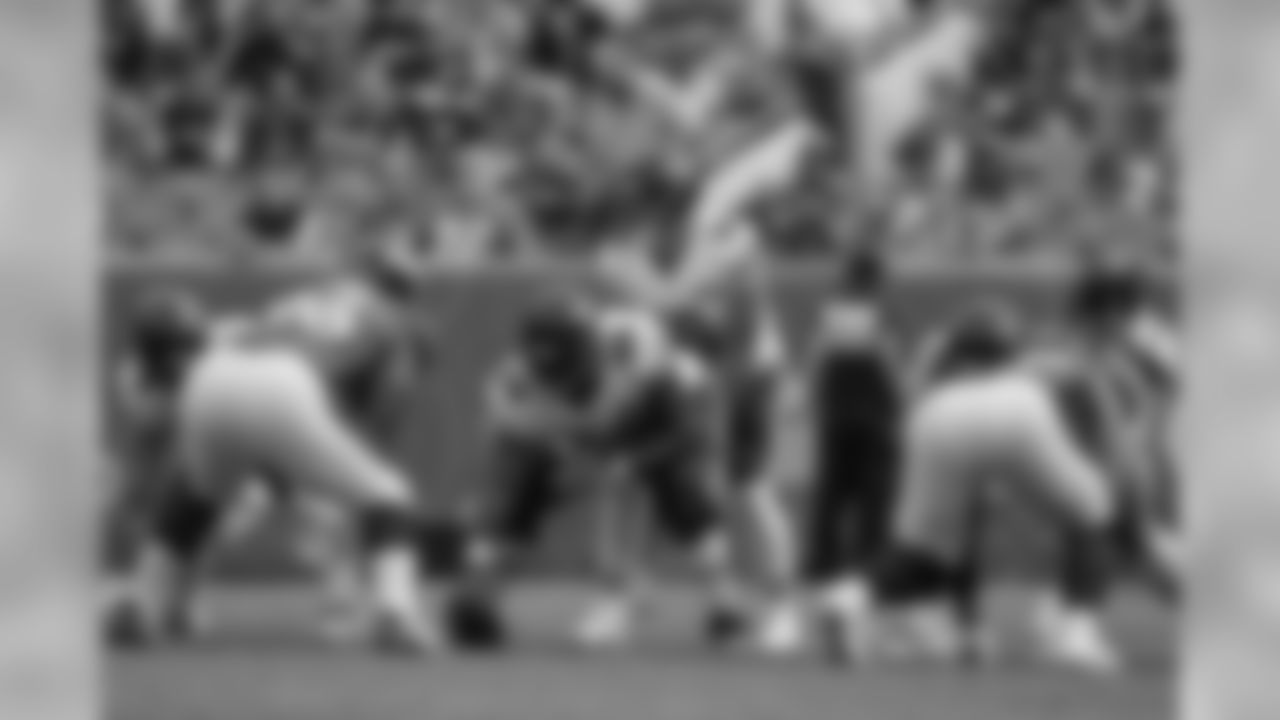
Chicago Bears quarterback Mitchell Trubisky is under center James Daniels (68) during an NFL football game between the Denver Broncos and the Chicago Bears, Sunday, Sept. 15, 2019, in Denver. (AP Photo/Jack Dempsey)
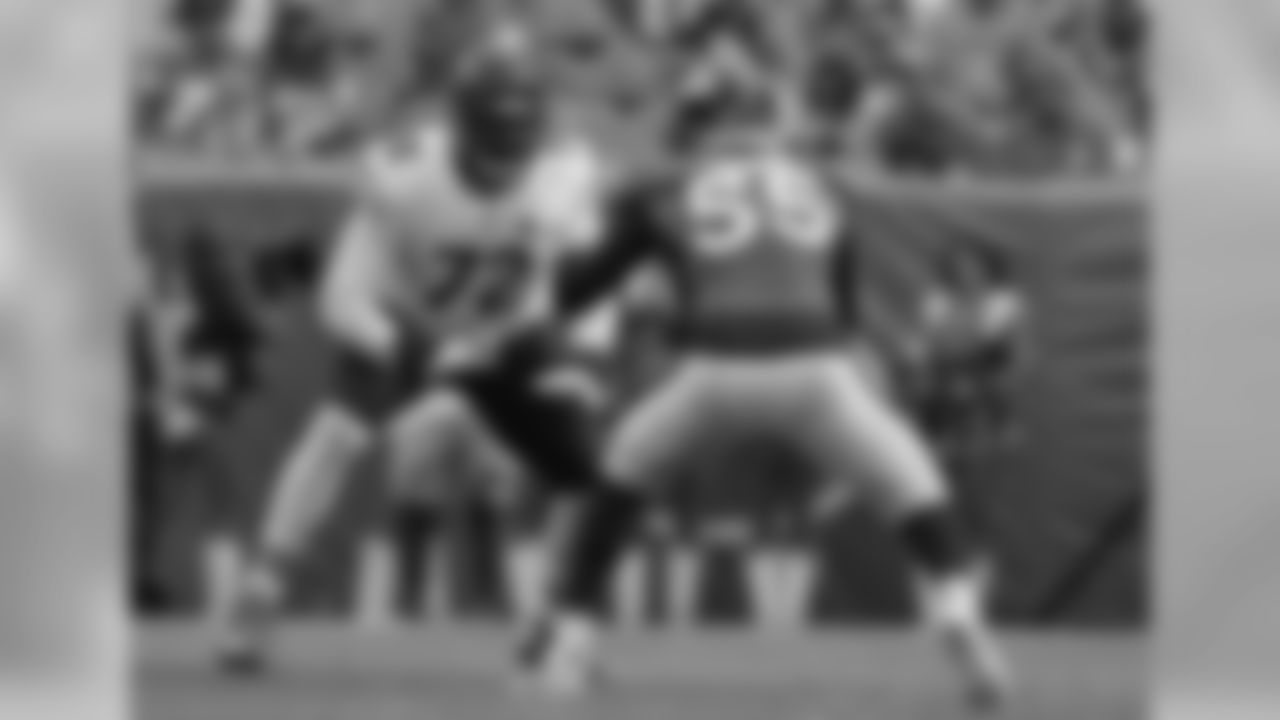
Chicago Bears offensive tackle Charles Leno (72) lines up against Denver Broncos outside linebacker Bradley Chubb (55) during an NFL football game between the Denver Broncos and the Chicago Bears, Sunday, Sept. 15, 2019, in Denver. (AP Photo/Jack Dempsey)
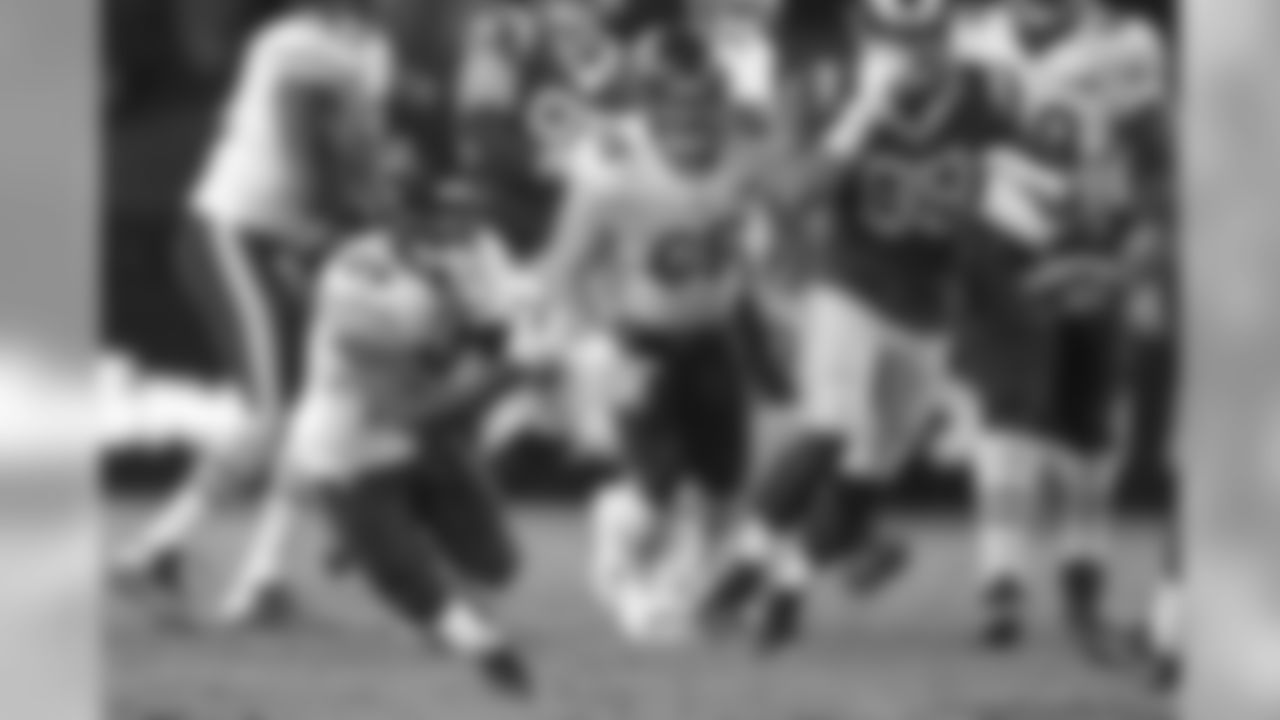
Chicago Bears running back Tarik Cohen, left, sprints with the ball in an NFL football game against the Los Angeles Rams Sunday, Nov. 17, 2019 in Los Angeles. (AP Photo/Kyusung Gong)
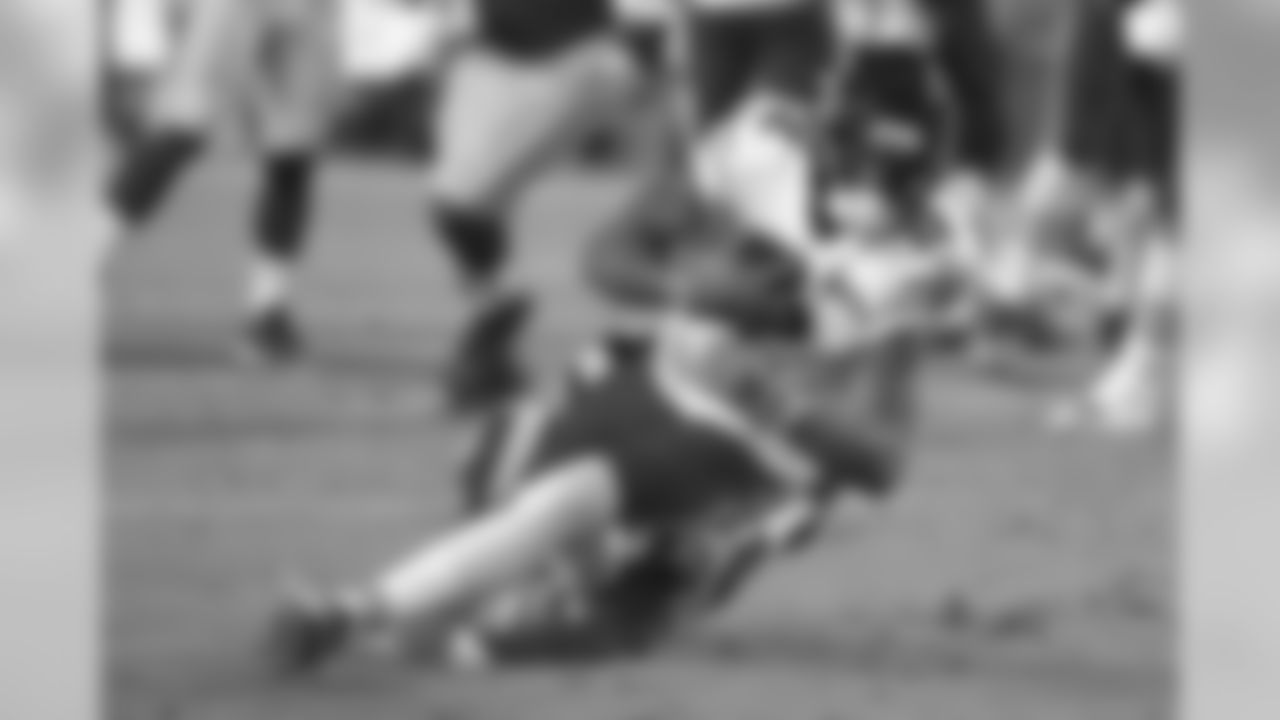
Chicago Bears wide receiver Allen Robinson is tackled by Los Angeles Rams free safety Eric Weddle during the first half of an NFL football game Sunday, Nov. 17, 2019, in Los Angeles. (AP Photo/Mark J. Terrill)

Chicago Bears wide receiver Anthony Miller, right, tips a pass intended for him before Los Angeles Rams cornerback Troy Hill intercepts it during an NFL football game Sunday, Nov. 17, 2019, in Los Angeles. (AP Photo/Mark J. Terrill)
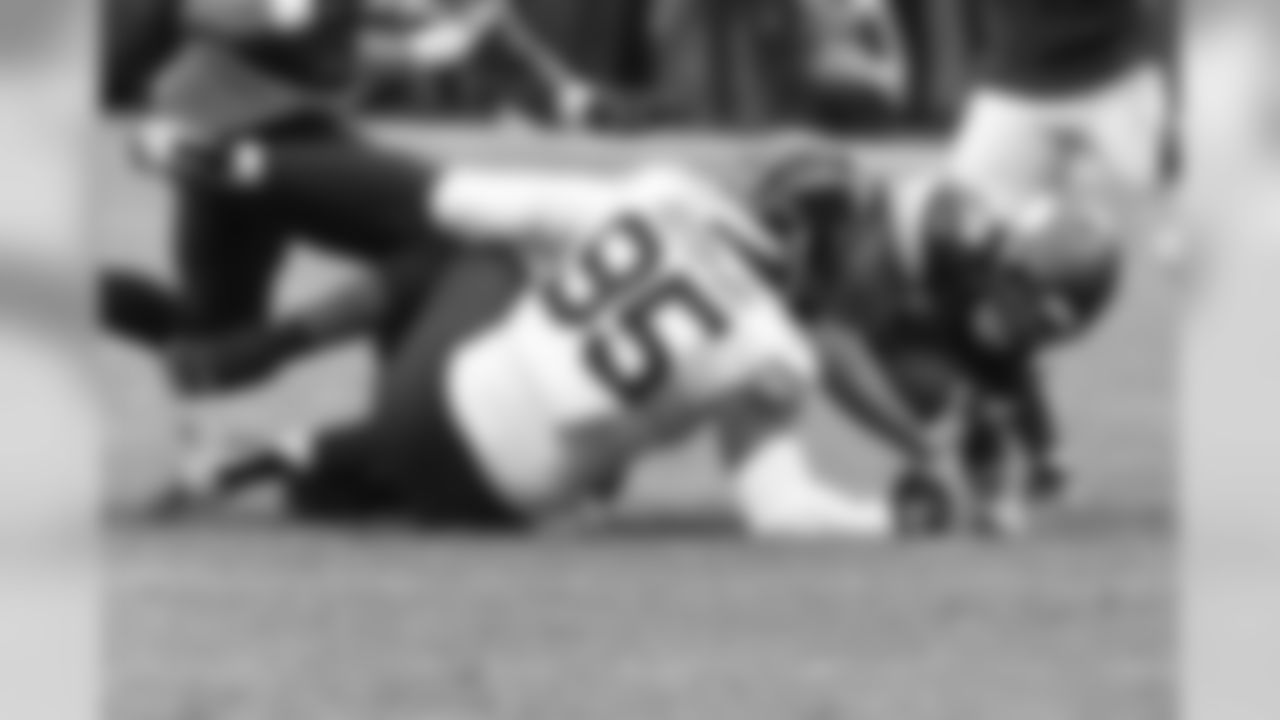
Minnesota Vikings quarterback Kirk Cousins (8) is sacked by Chicago Bears defensive end Roy Robertson-Harris (95) during the second half of an NFL football game Sunday, Sept. 29, 2019, in Chicago. (AP Photo/Matt Marton)
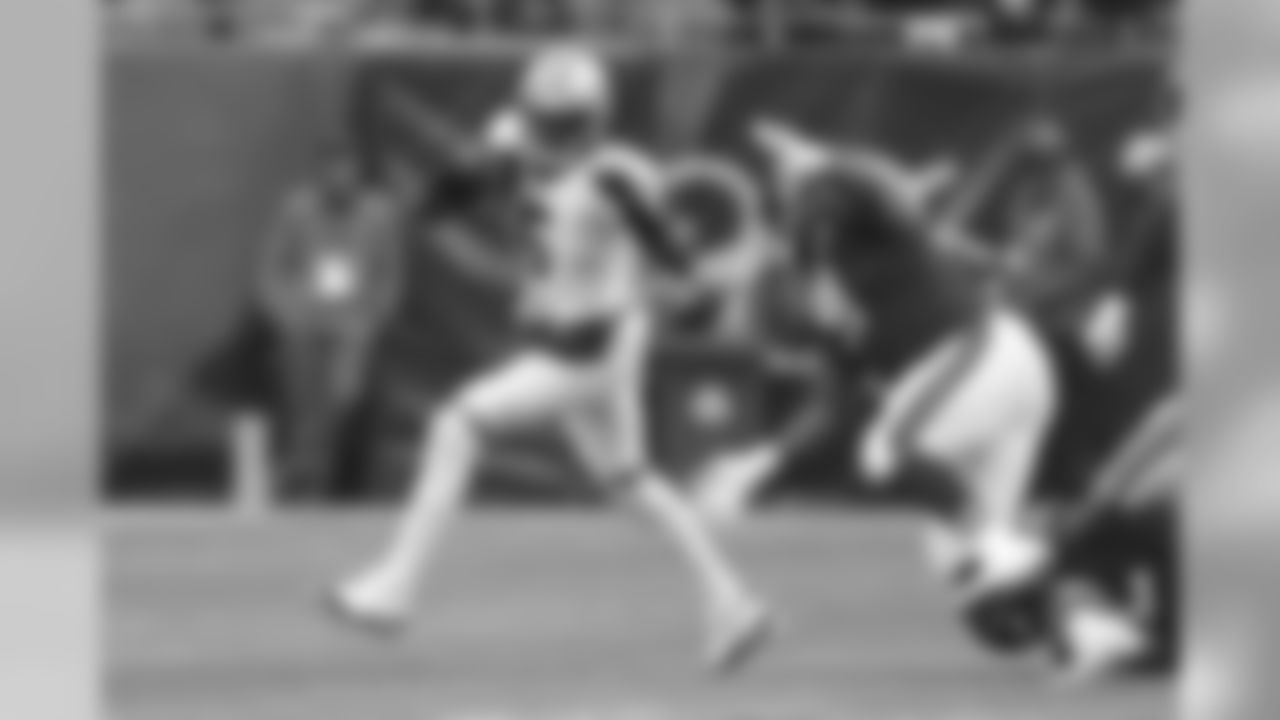
New Orleans Saints quarterback Teddy Bridgewater (5) is chased by Chicago Bears nose tackle Eddie Goldman (91) during the first half of an NFL football game in Chicago, Sunday, Oct. 20, 2019. (AP Photo/Charles Rex Arbogast)
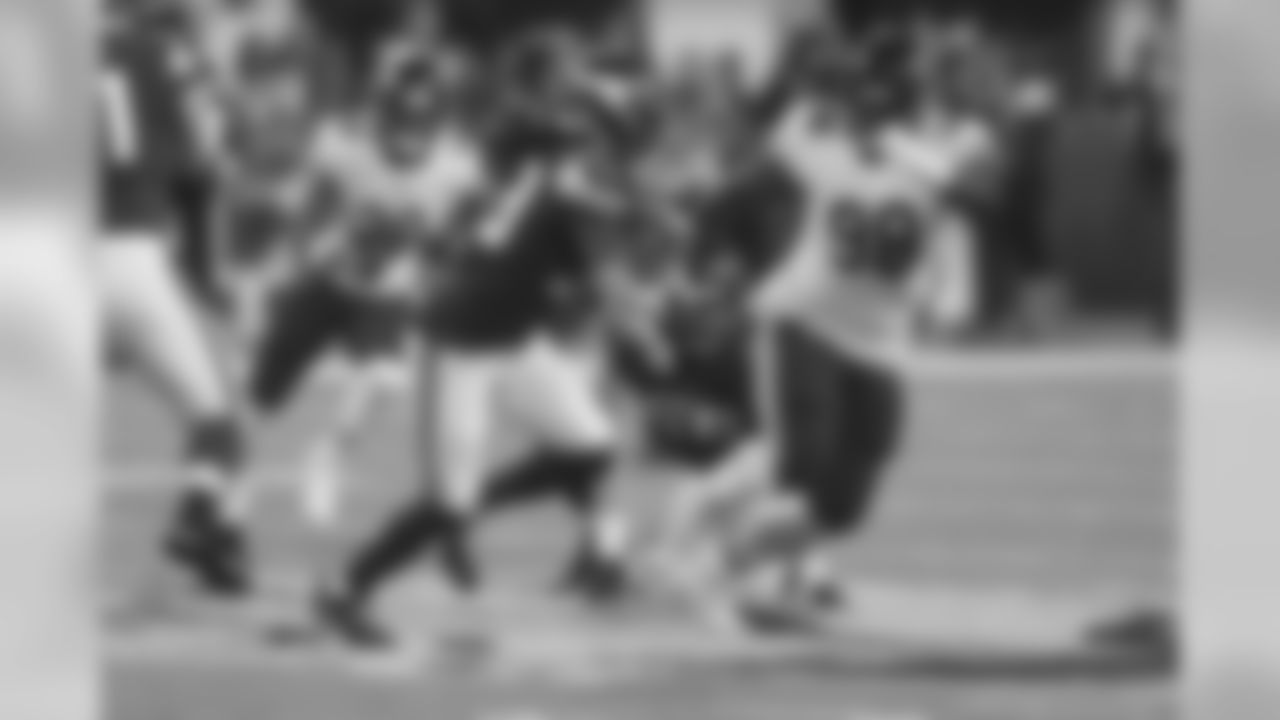
Minnesota Vikings running back Dalvin Cook runs from Chicago Bears defensive tackle Bilal Nichols (98) during the first half of an NFL football game, Sunday, Dec. 30, 2018, in Minneapolis. (AP Photo/Jim Mone)

Chicago Bears outside linebacker Khalil Mack rushes against the Detroit Lions during the first half of an NFL football game in Chicago, Sunday, Nov. 10, 2019. (AP Photo/Charles Rex Arbogast)
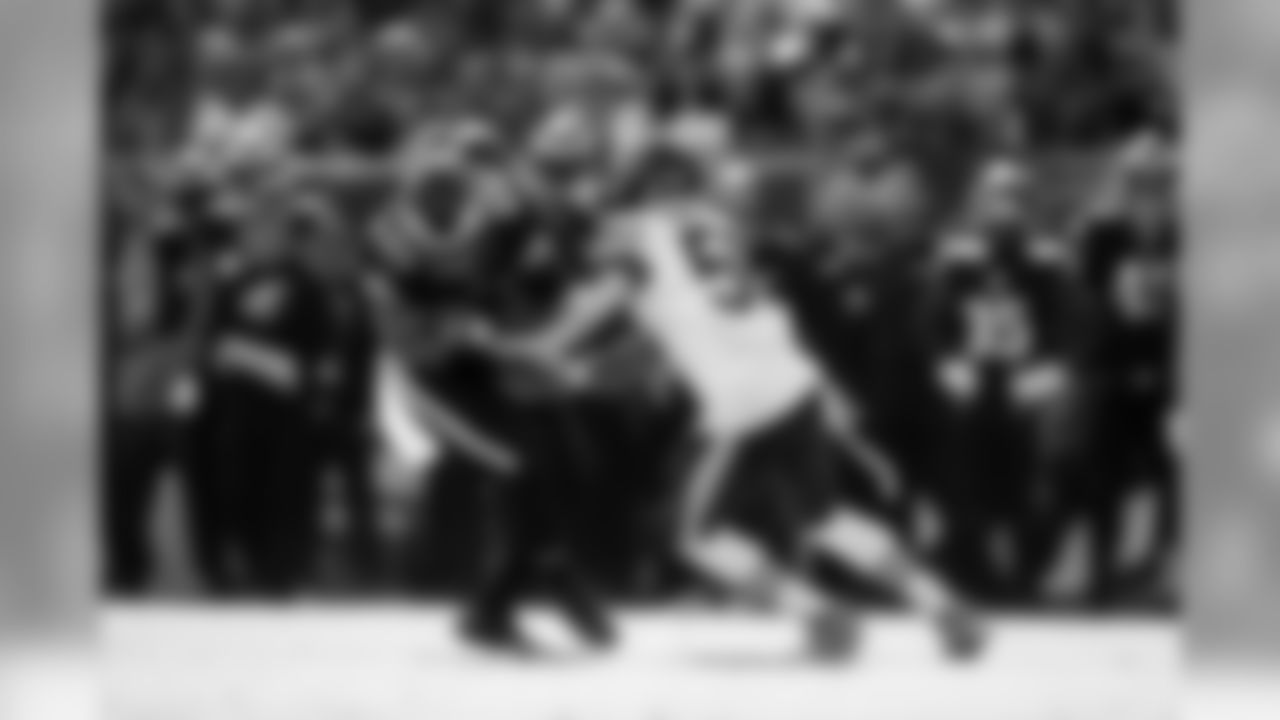
Philadelphia Eagles' Zach Ertz, left, is tackled by Chicago Bears' Danny Trevathan during the first half of an NFL football game, Sunday, Nov. 3, 2019, in Philadelphia. (AP Photo/Matt Rourke)
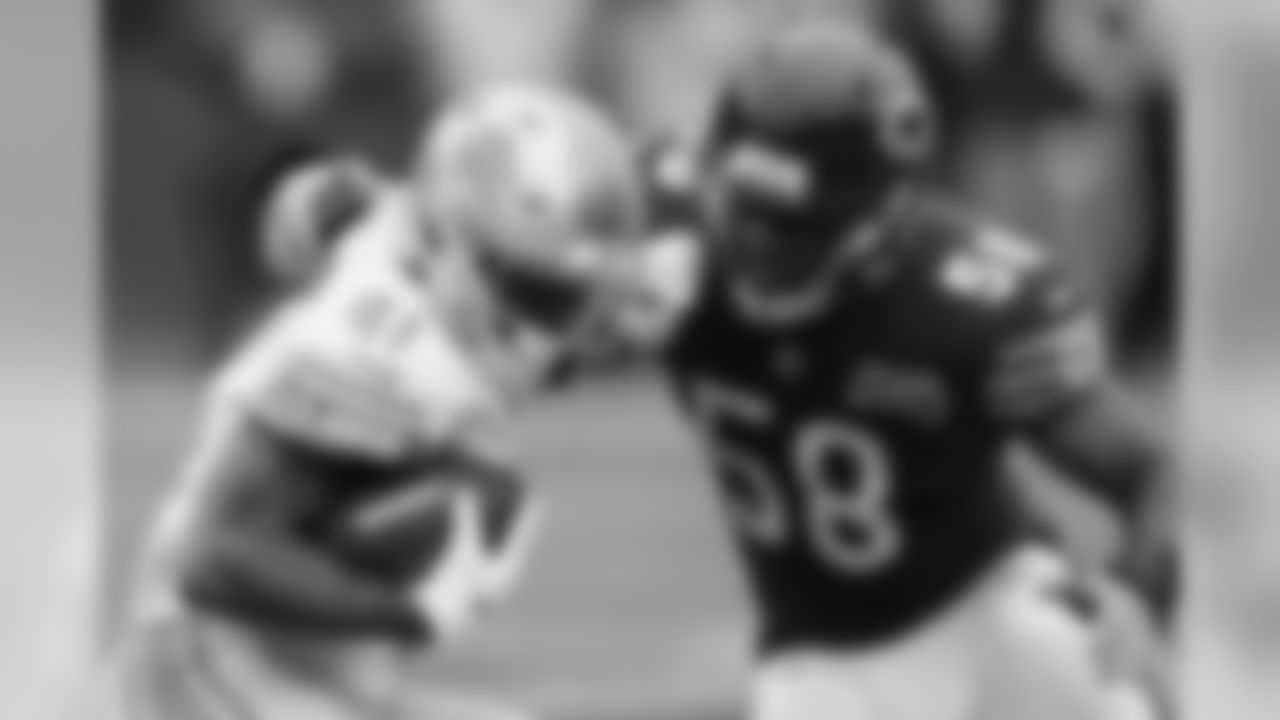
Detroit Lions running back J.D. McKissic (41) tries to avoid Chicago Bears inside linebacker Roquan Smith (58) during the first half of an NFL football game in Chicago, Sunday, Nov. 10, 2019. (AP Photo/Charlie Neibergall)
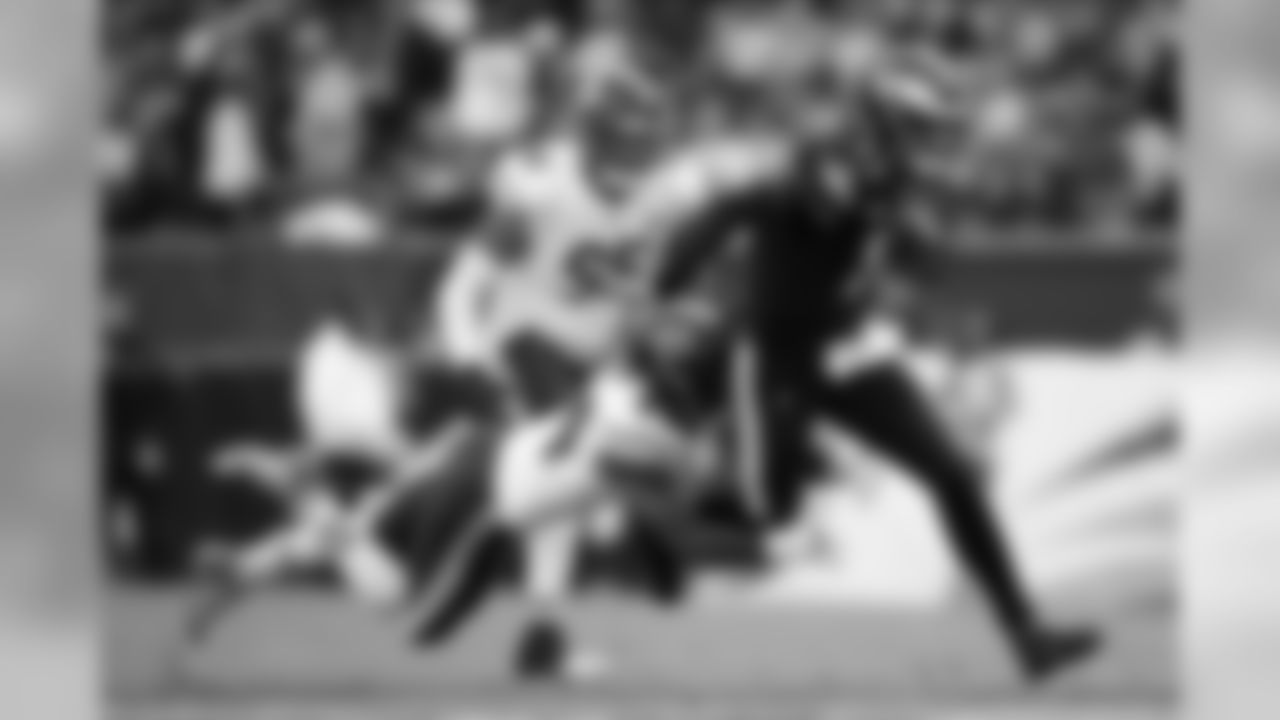
Philadelphia Eagles' Carson Wentz, right, is tackled by Chicago Bears' Leonard Floyd during the second half of an NFL football game, Sunday, Nov. 3, 2019, in Philadelphia. (AP Photo/Matt Rourke)
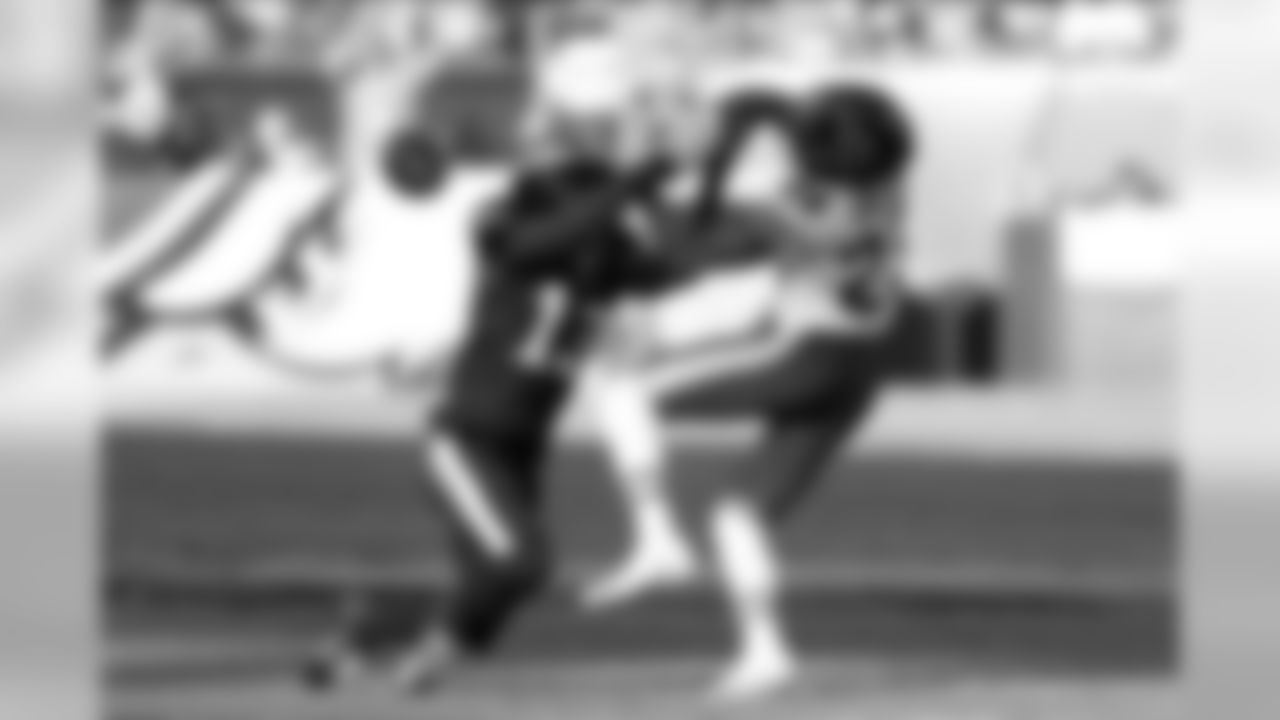
Philadelphia Eagles' Nelson Agholor, left, and Chicago Bears' Kyle Fuller battle for a pass during the first half of an NFL football game, Sunday, Nov. 3, 2019, in Philadelphia. (AP Photo/Chris Szagola)
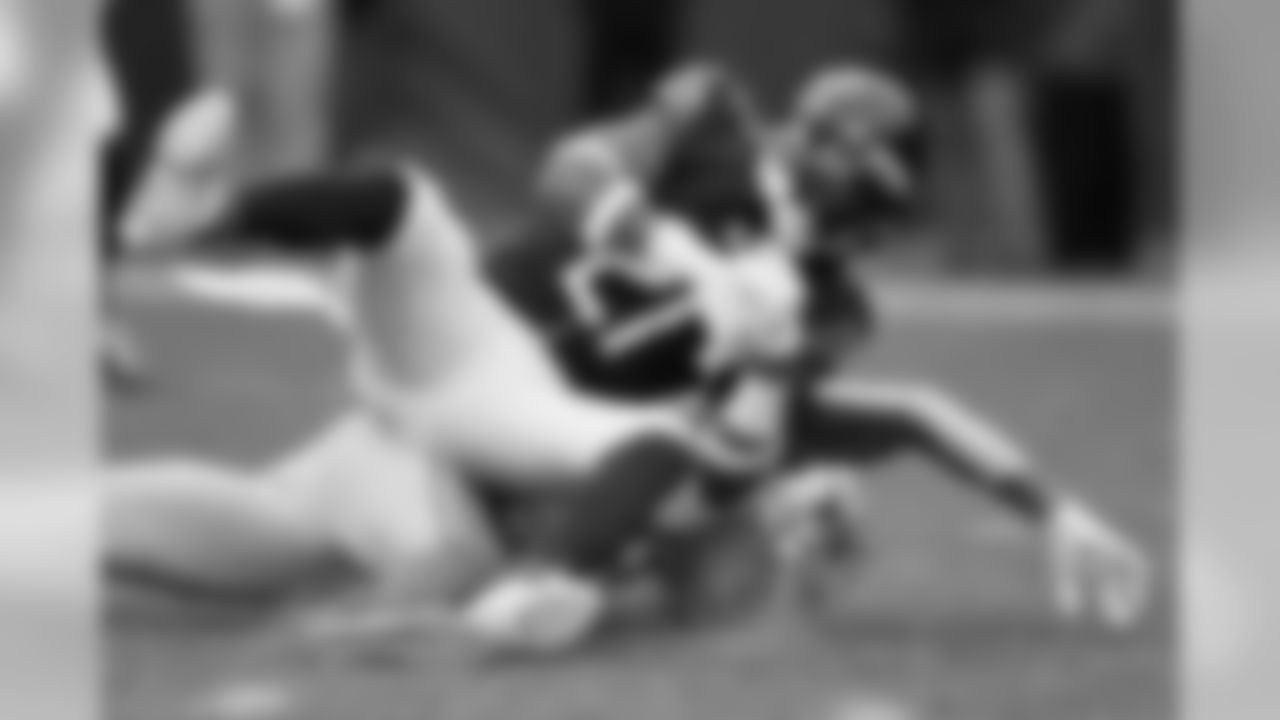
Chicago Bears strong safety Ha Ha Clinton-Dix (21) hits Detroit Lions wide receiver Kenny Golladay (19), forcing an incomplete pass, during the first half of an NFL football game in Chicago, Sunday, Nov. 10, 2019. (AP Photo/Charlie Neibergall)
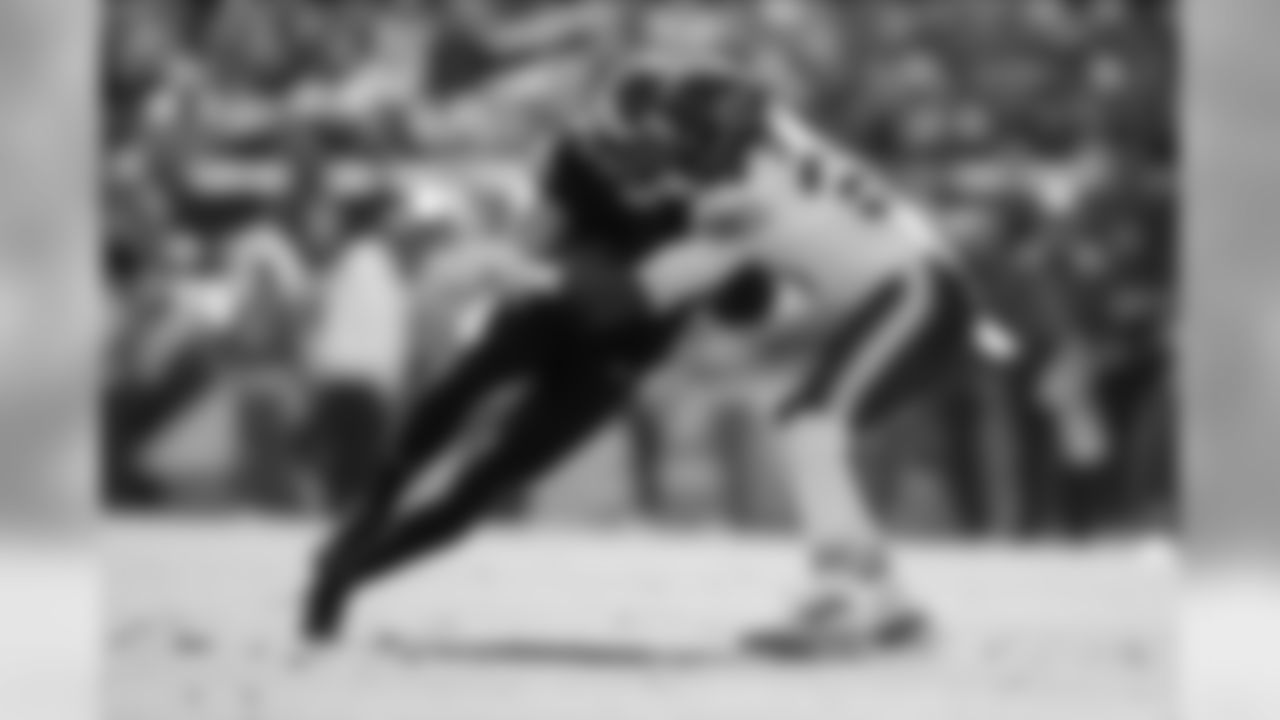
Philadelphia Eagles' Zach Ertz, left, is tackled by Chicago Bears' Eddie Jackson during the first half of an NFL football game, Sunday, Nov. 3, 2019, in Philadelphia. (AP Photo/Matt Rourke)
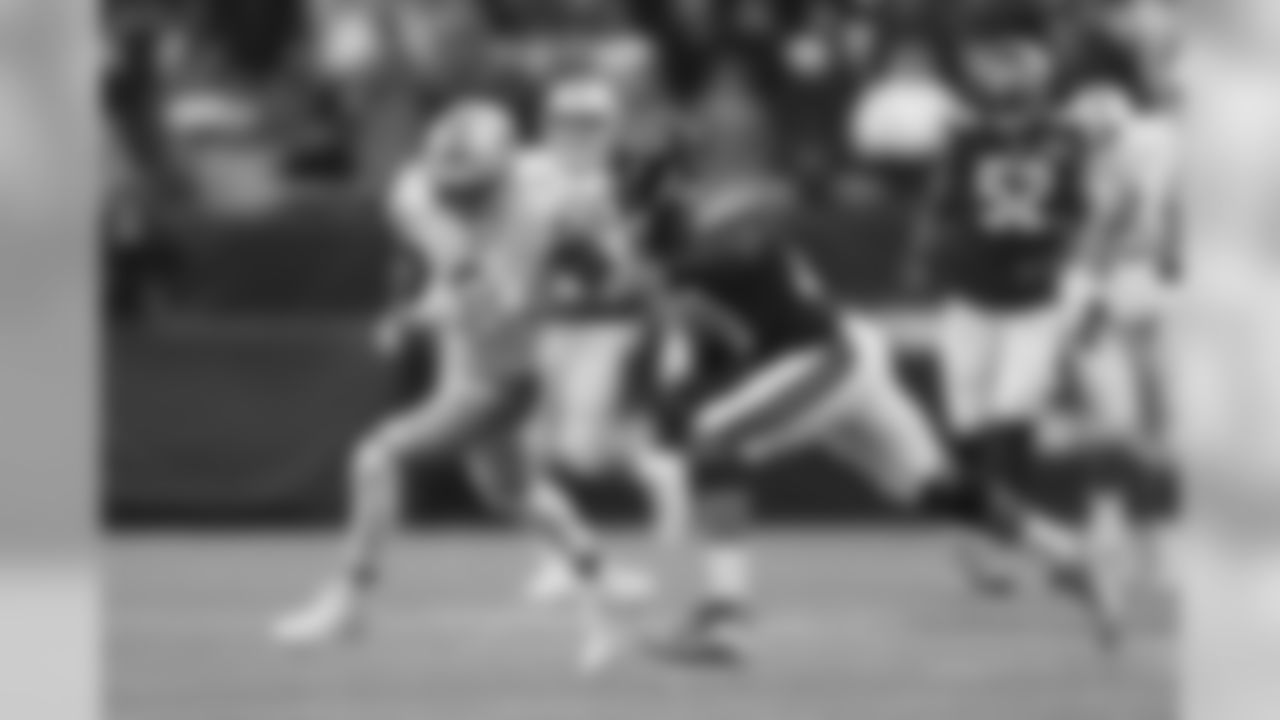
Detroit Lions wide receiver Marvin Jones (11) runs after a catch as Chicago Bears cornerback Prince Amukamara (20) defends during the second half of an NFL football game in Chicago, Sunday, Nov. 10, 2019. (AP Photo/Charlie Neibergall)
Q: Is that a good teaching tool for him, for you to go through each one and say, 'This is what happened here, this is what we need to avoid?'
Shurmur: "I think so. But again, it's also cliché because we've been doing that all along. Each week, you look at the things that were good and the things that were not good, and you try to clean up the specifics and try to stop any trends. The bye week, obviously, you can take a minute and look at it in total."
Q: Once again, you won't have all of your offensive weapons when you play the Bears Sunday in Chicago. (Tight ends) Evan Engram and Rhett Ellison won't play, and Kaden (Smith) and Scott (Simonson) will. Every week someone is missing. You put together the game plans and call the plays. Does it seem like there's more of that this year than you've experienced in the past?
Shurmur: "We've had guys this year in and out of the lineup. Injuries, suspensions, whatever. Again, the next man has got to get in there and perform at a high level. There are no excuses for it. I've said it many times and I believe it. You start saying, 'Well, we have a young team' or, 'We have an injured team,' or 'We're facing adversity here.' Then you start building with excuses. You have to go win a game with the players that you have. That's the challenge for the coach."
Q: When you put together a plan, how much do you have to tailor it? This week, it's two new tight ends? Or do you just try to do it as you normally would with the players that you have?
Shurmur: "No, you always put a plan together with the idea early in the week of who's going to be playing for you, available to you. If you have a blocking tight end that doesn't have the ability to get down the field like a guy like Evan, then tight end-type plays don't look the same. The same can be said for any area. When we played New England, Jon Hilliman and Austin Walter were our running backs. What you're going to try to ask the running backs to do is a little different than when you have Saquon and Wayne (Gallman)."
Q: What first caught your eye about Kaden Smith? He was a sixth-round draft choice, the 49ers cut him, you scooped him up pretty quick.
Shurmur: "We liked him in the draft. We felt he was a draftable talent, he was available and so we snagged him. Pretty simple."
Q: Scott Simonson played all 16 games for you last season. He has been able to come in and pick up kind of where he left off?
Shurmur: "Certainly, he has familiarity with how we function, both as an organization and then, obviously, as an offense. What he needed to learn was just some of the things that are new since he left. He's a smart guy that works really hard, and he'll be well aware of what we want to do on Sunday."
Q: For much of the Jets game, you played with three backup offensive linemen. It wasn't perfect, but Daniel still threw for 308 yards and four touchdowns. Did you come out of that game feeling good about the depth you have on the offensive line?
Shurmur: "We certainly weren't having success running the football. We threw it more than we normally would. But I felt like they battled. They went in there and fought extremely hard and showed up well for themselves."
Q: In the previous game against Dallas, Darius Slayton had one catch and wasn't much of a factor. Against the Jets, he caught 10 passes for 121 yards and two touchdowns. Did something click for him? Did you talk to him? Or was it just natural improvement for a rookie?
Shurmur: "I'd like to think it's natural improvement. You don't want to see him have a game like he had versus Dallas. But again, it's the first time he's going through this, so you just keep coaching him and working with him. I know that he can have an impact on the game. He's had an impact on a handful of our games this year already. He just has to keep trying to improve each week. He's a lot like a lot of our young players. I think he has a bright future."
Q: Defensively, as you prepare to play the last six games, is there one specific thing you would like to see, whether it's more takeaways, a more consistent pass rush, getting off the field on third down?
Shurmur: "I think you have to do all of those things to play defense. Obviously, you have to control the run game. Then you have to play good situational football, whether it be third down, red zone, certainly. That speaks to your success as a defense, when they're not converting third downs and they're not scoring. That's the key. Then the things you do like to see are the dynamic plays, like turnovers and sacks. Unfortunately, we need to get more of those as well. On a negative slant, you want to eliminate the big plays, the big chunk plays. In the case of a ball that gets completed on you, it can't go for a touchdown. We have to get it tackled. Have to get the runner tackled and play. If the team makes a play on you, you have to get him on the ground and then go from there."
Q: Chicago's defense is ranked in the top 10 in the league in most of the major statistical categories. Do you see them as having a solid, strong defense from front to back?
Shurmur: "They have two impact rushers with (Khalil) Mack and (Leonard) Floyd and really situational players behind those rushers that do a nice job. They have outstanding players at the second level, their linebackers play extremely well, and they have a veteran secondary that does a good job of minimizing the big plays that they give up. Those are all of the ingredients for a top defense, and they've played that way."
Q: Offensively, their numbers are not as impressive. But individually, we saw last season what (Tarik) Cohen can do. (Allen) Robinson is a top receiver. (David) Montgomery has come in and played nicely for them. Do you agree they have a lot of individual talent there?
Shurmur: "They do. Cohen is a dynamic player. He can score with the ball in his hands from anywhere on the field. They'll throw it to him as much as they'll run it with him. Montgomery has been a good role player for them. He's done a really nice job for a rookie. Robinson, I've always admired his style of play. He's a tough, gritty guy that can make a play. He can get open. But the one thing that I really admire about him is there's a toughness to him and he can catch the ball in a crowd. I think that's just as important as a guy being able to catch one when he's wide open."
Q: You spent a season (in Minnesota) with Cordarrelle Patterson. He's third in the league in kickoff return average and Cohen is second on punt returns. Is that as good a combo of return specialists as you're going to see this year?
Shurmur: "Oh, for sure. I think Cordarrelle has a positive, full impact on special teams. He plays gunner, he plays in the core, he obviously is a returner. He really feels like if he gets the ball in his hands, he can go for a touchdown. That's why you'll see him bring the ball out if it's kicked way deep. He's tough, competitive and his impact is really, really felt on special teams. In low-scoring, tight games, a special teams score can make the difference. We have to be really aggressive and physical. We have to be smart about how we approach this, but understand that he's an outstanding player."
Giants vs. Bears Broadcast Info: TV channel, Radio Station and Live Stream.

Sign up for the Giants Newsletter
Breaking news and exclusive content direct to your inbox











